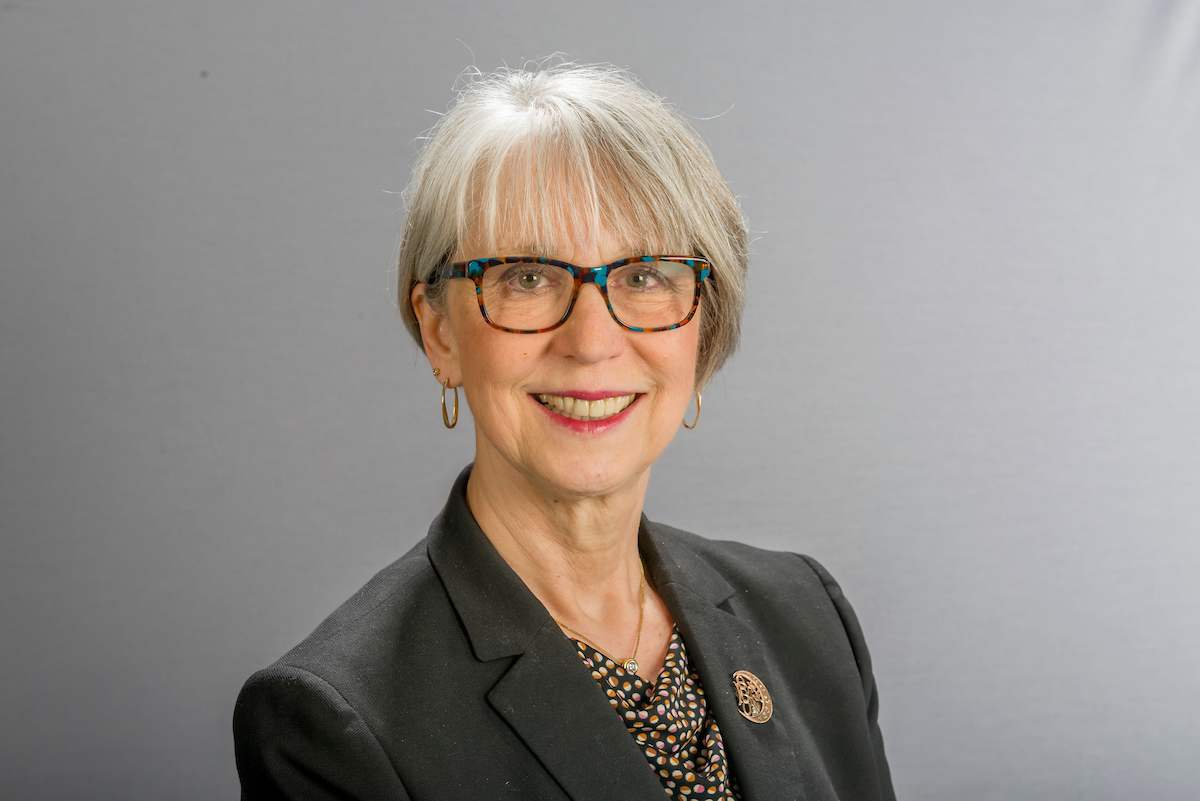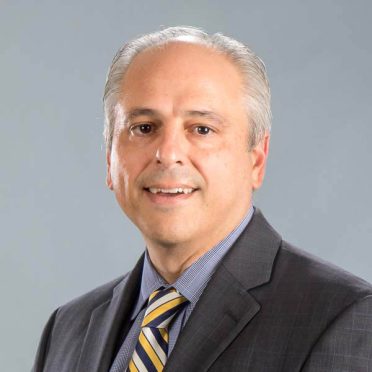Annetta Caplinger runs a tight ship – from the four boys she raised, largely on her own when her Navy husband was deployed, to the way she commandeers the programs and services at the Institute of Living (IOL) – but everything she does always comes with a healthy dose of humor and compassion.
Caplinger, who is now vice president of clinical operations, recently celebrated 35 years at the IOL, which made her chuckle because she wasn’t expecting to put down roots in Connecticut for even a fraction of that time.
“When we came here for my husband’s duty, I took a job at what was then a 440-bed asylum with mostly long-term patients,” she remembered, sitting in her administrative offices in the Terry Building. “We didn’t plan on being here long.”
The Ohio native started as a staff nurse in 1984 when there were open units and the Retreat Avenue grounds were filled with people walking around, playing tennis, going to woodworking and craft classes, or getting a haircut in the salon. Although she had experience at Veterans’ Administration hospitals large (2,000 bed) and small (30 bed), on both psychiatric and med surg units, Caplinger said the IOL was a new experience. “I had the privilege of working with smart people every day.”
“I had a mostly mental health background, before there were effective families of drugs to help things like psychosis,” she said. “Whatever setting I worked in I was doing psychiatric nursing because minds don’t walk around without bodies.
“But, here, pools and tennis lessons were all part of the treatment. Patients got town passes to leave the grounds – those would be the people who receive care in a residential setting now.”
Mental health nursing always appealed to Caplinger, who speaks directly but enjoys lacing conversation with sarcasm and pithy jokes.
“I like and am fascinated by people. I think it’s a privilege that people are able and willing to open up to me,” she mused. “I enjoy getting to know and understand people and their stories.”
It was this that prompted her – as unit head nurse and parenting her sons as her husband was relocated to Portsmouth, NH, commuting home every other weekend – to join a night master’s program in nursing sponsored by the IOL and St. Joseph’s College. After graduating, she was promoted to nursing coordinator.
During the downsizing of mental healthcare in the 1990s – and the 1994 merger with Hartford Hospital – Caplinger was charged with closing units and, ultimately, directing the outpatient geriatrics service.
“Treating people who went home at night gave me a larger view of the world,” she said of the latter.
Through such turbulence to today’s largely ambulatory environment, Caplinger credited being born the oldest daughter for her no-nonsense style. While she misses regular patient contact, she noted management offers a different challenge and reward.
“I’ve always been a leader and I realized from a certain position that you could affect more lives even though you have less patient contact,” she explained, noting that the organic teamwork at the IOL is invaluable. “Lots of things have happened because someone came to me with a great idea, and I resourced and supported it.
“I like to encourage creativity and promote ideas that will affect the underserved populations.”
An example is the IOL peripartum mood disorders program, borne of a suggestion from people in the community who recognized a need to help women with mental illness during or after pregnancy. Another is work to benefit the LGBTQ community, which started, she said, with no resources but an experienced provider.
“We recognize a need that’s not being met and figure out how to address it. It’s frustrating when there’s a clear need and no adequate way to fund something,” she said.
Calling herself the “resident pinch hitter,” Caplinger said she learns new things from IOL staff and clients every day. She likes joining staff huddles where she claimed to “learn far more than I give.”
“There’s nothing more valuable than hearing what people do in their day. It’s really cool,” she said.
The biggest change that Caplinger has seen in the last 35 years is the improvement in the understanding of and the medications for mental illness as well as a sharpened focus on the needs of patients as human beings.
“People complain about managed care but the truth is I think it’s really having better treatments increase the number of people we can treat as outpatients,” Caplinger explained. “We are working toward better diagnosis and understanding what recovery means for each person. It could mean living your best life with the illness, rather than simply learning to cope with it.
“It boils down to listening to the person and what they need to do to live their best life.”
Retirement may be closer than it was but the grandmother of seven said there is still work to do before she can join what she calls the “gray wave.”
With the IOL’s 200th anniversary in 2022, she has already spearheaded planning efforts to celebrate the 200th while also trying to “quit doing things myself and hand them off.”
“Annetta has always been a ‘doer’ and a leader,” said HHC BHN President Pat Rehmer, who worked closely with Caplinger as a nurse in the 1980s and now in leadership. “It’s a great combination to have – she’s not going to ask you to do something that she wouldn’t do herself. She’s hands-on, innovative and passionate about her work.”
HHC BHN Physician-in-Chief John Santopietro, MD, said Caplinger is part of the fabric of the IOL.
“She’s incredible,” Santopietro said. “She’s part of the glue that has held the IOL culture together – past, present and no doubt in the future.”


